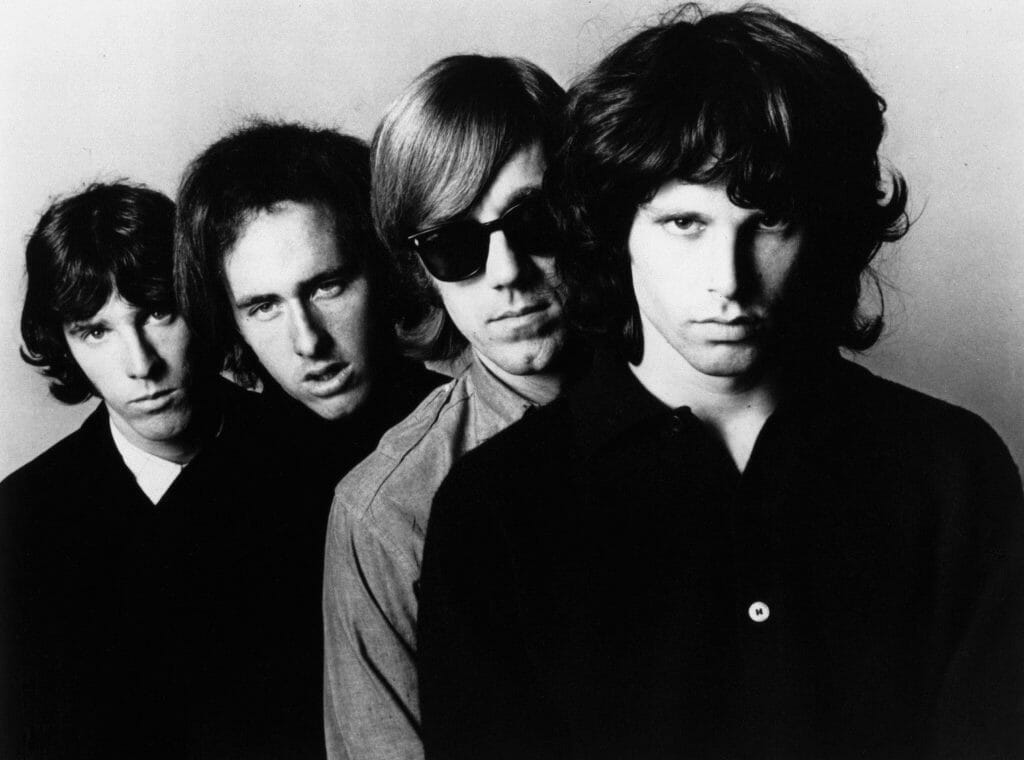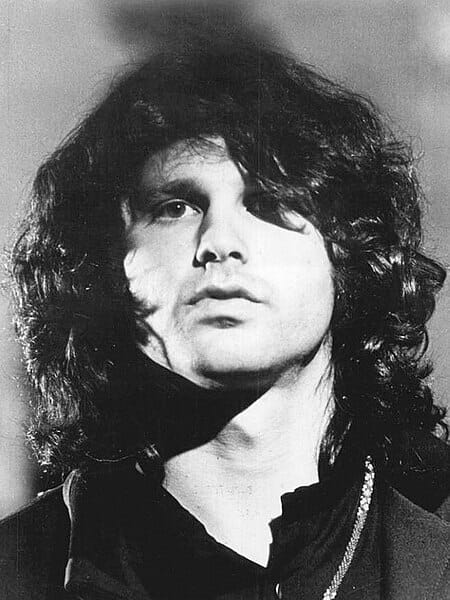‘The End’ by The Doors is a song of epic proportions, one that has lasted among rock culture since its release and still gets plenty of airtime around the world.
Jim Morrison was known for his songwriting abilities, but the success of the song, and its epic emotion, have resulted in many different understandings of the song’s definitive meaning.
Something which Morrison mused on himself in an interview with Rolling Stone magazine.
In this interview, Morrison walks us through his personal experience of trying to understand his own art, as well as how it affects his fans.
Keep reading to learn more about Morrison’s writing processes as well as the meaning behind the hit song ‘The End’.
The Oedipus Cut
During the interview, reporter Jerry Hopkins chose to start his questioning of Morrison’s writing with the most unknown but also intriguing part of the song.
Most people are familiar with the radio edit of ‘The End’ which is shorter and made more listenable for radio. The uncut full song is almost 12 minutes.
If you know the full version of the song, you know that it starts quite solid and around the halfway mark descends into a long crescendo.
In this version, around 6 minutes in there is a verse section that quite directly discusses the myth of Oedipus.
Father?
Yes, son?”
I want to kill you
Mother, I want to…
Come on, yeah
Around the 8th minute we hear an enchanted and uncontrolled Morrison wailing and shouting obscenities, the use of obscene language is likely a big factor as to why the radio edit is much shorter.
When asked about this section Morisson replied:
Let’s see … Oedipus is a Greek myth. Sophocles wrote about it. I don’t know who before that. It’s about a man who inadvertently killed his father and married his mother.
Yeh, I’d say there was a similarity, definitely. But to tell you the truth, every time I hear that song, it means something else to me.
I really don’t know what I was trying to say. It just started out as a simple goodbye song.
While this isn’t the most romantic, or exciting account of the meaning behind the song, we could interpret Morisson as saying that the song turned into something complex, referential, and symbolic, but this perhaps wasn’t true to the initial feeling that persuaded Morrison to write the song.
Earlier in the article he mentions:
To me a song comes with the music, a sound or rhythm first, then I make up words as fast as I can just to hold on to the feel — until actually the music and the lyrics come almost simultaneously.
This clearly shows that what is important to Morrison’s songwriting process is the immediate feeling that his writing conjures, the song should encapsulate this feeling more than anything else.
RELATED: What Is The Meaning Behind Stairway To Heaven?

Letting Go And Saying Goodbye
For Morisson, the best songs are those which can communicate emotion in the simplest way, further supporting the idea that criticism surrounding ‘The End’ can be too investigative and look past the real meaning.
I think it’s sufficiently complex and universal in its imagery that it could be almost anything you want it to be.
However, it is clear that Morrison cares less for critics’ opinions and is more interested in how real people interpret his song in personal ways – this is clear as he indulges an anecdote of his own realization of this.
I don’t care what critics write about it, or anything like that, but one thing that disturbed me …
I went to a movie one night in Westwood and I was in a bookstore [when] a girl thought she recognized me and she came to say hello.
And she was asking me about that particular song. She was just out for a little stroll with a nurse. She was on leave, just for an hour or so, from the UCLA Neuropsychiatric Institute. She lived there and was just out for a walk. […]
Anyway, she said that that song was really a favorite of a lot of kids in her ward. At first I thought:
Oh, man … and this was after I talked with her for a while, saying it could mean a lot of things, kind of a maze or a puzzle to think about, everybody should relate it to their own situation.
I didn’t realize people took songs so seriously and it made me wonder whether I ought to consider the consequences.
That’s kind of ridiculous, because I do it myself; you don’t think of the consequences and you can’t.
This anecdote is widely open to interpretation, but I think it relates to Morisson’s comments about simplicity and its potential for complexity.
The song is about an ending, it would be remiss to not think Morisson was talking about death in a simple but wide-reaching way.
This seems to be what he is referring to in the anecdote, death itself is ‘kind of a maze or a puzzle to think about’ and this is the sort of feeling that the song encapsulates.
Death is a very simple thing, something personal that we can all deal with in nuanced and personal ways which is sufficiently complex and universal in its imagery.
‘The End’ could be a song about death. Morrison’s own incantations and wailing in the song are like the death rattle of a dying man, the song itself is just one long musical crescendo.
It seems this girl in the bookstore helped Morrison realize this himself.
The song is a mirror that can reflect our thoughts and fears concerning death, the widely interpreted Oedipus references could simply be another reflection of death.
RELATED: How Born In The USA Has Been Misunderstood
Final Thoughts On Jim Morrison’s Interview With Rolling Stone
The interview shows us that Morrison may not even understand the song himself, but the song clearly deals with the subject of death.
While this may have occurred to Morrison in the form of saying goodbye “probably just to a girl”, this act of saying goodbye is so simple and complex that it can universally speak to all our fears of goodbyes, of ending, of death.
Unlike life, perhaps our own interpretations don’t need a definitive end, to muse on death is to be alive, to be human.
For some more insight into the story surrounding ‘The End’, check out this clip from Polyphonic.
Until next time Rock Stars.
The Doors – ‘The End’ Lyrics
This is the end, beautiful friend
This is the end, my only friend
The end of our elaborate plans
The end of everything that stands
The end
No safety or surprise
The end
I’ll never look into your eyes again
Can you picture what will be?
So limitless and free
Desperately in need of some stranger’s hand
In a desperate land
Lost in a Roman wilderness of pain
And all the children are insane
All the children are insane
Waiting for the summer rain
There’s danger on the edge of town
Ride the king’s highway
Weird scenes inside the gold mine
Ride the highway West, baby
Ride the snake
Ride the snake
To the lake
The ancient lake, baby
The snake is long
Seven miles
Ride the snake
He’s old
And his skin is cold
The West is the best
The West is the best
Get here and we’ll do the rest
The blue bus is calling us
The blue bus is calling us
Driver, where are you taking us?
The killer awoke before dawn
He put his boots on
He took a face from the ancient gallery
And he walked on down the hall
He went into the room where his sister lived
And then he paid a visit to his brother
And then he, he walked on down the hallway
And he came to a door
And he looked inside
“Father?”
“Yes, son?”
“I want to kill you”
“Mother, I want to…”
Come on, yeah
Come on, baby, take a chance with us
Come on, baby, take a chance with us
Come on, baby, take a chance with us
And meet me at the back of the blue bus
Doin’ a blue rock on a blue bus
Doin’ a blue rock, c’mon yeah!
Fuck, fuck-ah, yeah
Fuck, fuck
Fuck, fuck
Fuck, fuck, fuck, yeah
C’mon baby, c’mon
Fuck me baby, fuck yeah
Fuck, fuck, fuck, fuck, yeah!
Fuck, yeah! C’mon baby
Fuck me baby, fuck, fuck yeah
Whoa, whoa, yeah, fuck, yeah
C’mon, yeah
Alright
Kill, kill, kill, kill, kill…
This is the end, beautiful friend
This is the end, my only friend
The end
It hurts to set you free
But you’ll never follow me
The end of laughter and soft lies
The end of nights we tried to die
This is the end
- The 25 Richest Rock Stars in the World | A Rock And Roll Rich List - February 22, 2024
- Rock And Roll Movies | 20 Films That Will Rock Your World - February 19, 2024
- The Biggest One Hit Wonders In Rock History - February 16, 2024


